Over time as traditions are carried out, their evolution is only natural, while some are even found to no longer be relevant to younger generations in a contemporary context.
One such example in the Greek community is the dowry, or proika as it is known, a custom which saw mothers use traditional textile crafts on linen collected for their daughters to be passed on when they married as somewhat of a rite of passage.
In her latest work, The Dowry Project, Melbourne-based multi-disciplinary artist and community arts worker Sonia Zymantas tapped into her own Greek heritage and turned the dowry on its head to examine such cultural traditions through a feminist lens, by giving the public the chance to acknowledge their own personal traditions.
“A lot of love went into the dowry I’m sure. Our parents were collecting because they thought it would be something of value for their children. But now we’ve got a more sort of modern and less thought out kind of lifestyle – like the flat pack. So I was kind of curious about that as a starting point for a conversation,” Sonia told Neos Kosmos.
Put on at the One Night in Footscray Festival last month, the project – a combination of installation and performance – welcomed people, namely women, of all cultures to go along and have a one-on-one embroidery and conversation session with Sonia, during which the artist posed what proved to be a rather poignant question: What’s a meaningful tradition for you in your own culture? What does it mean?
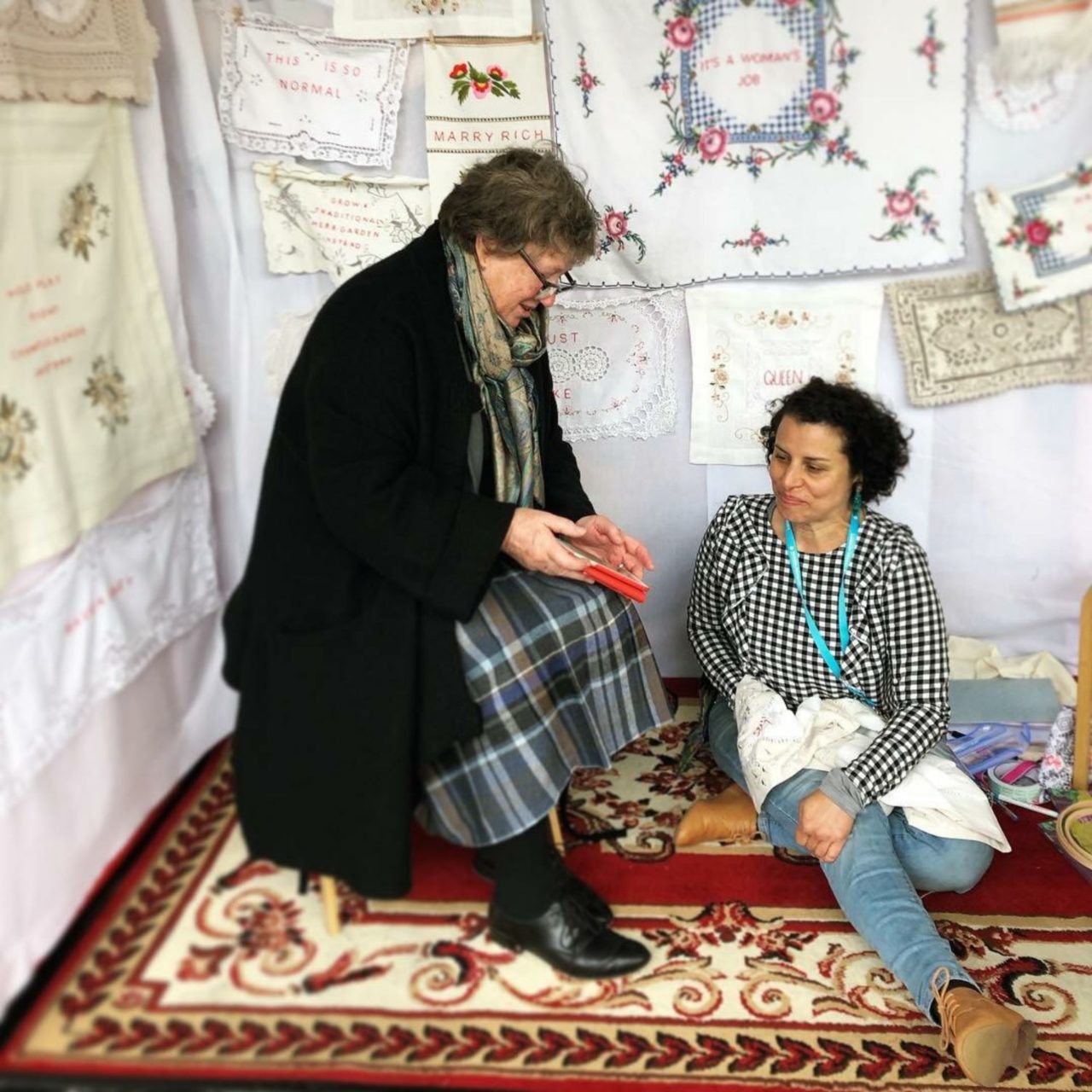
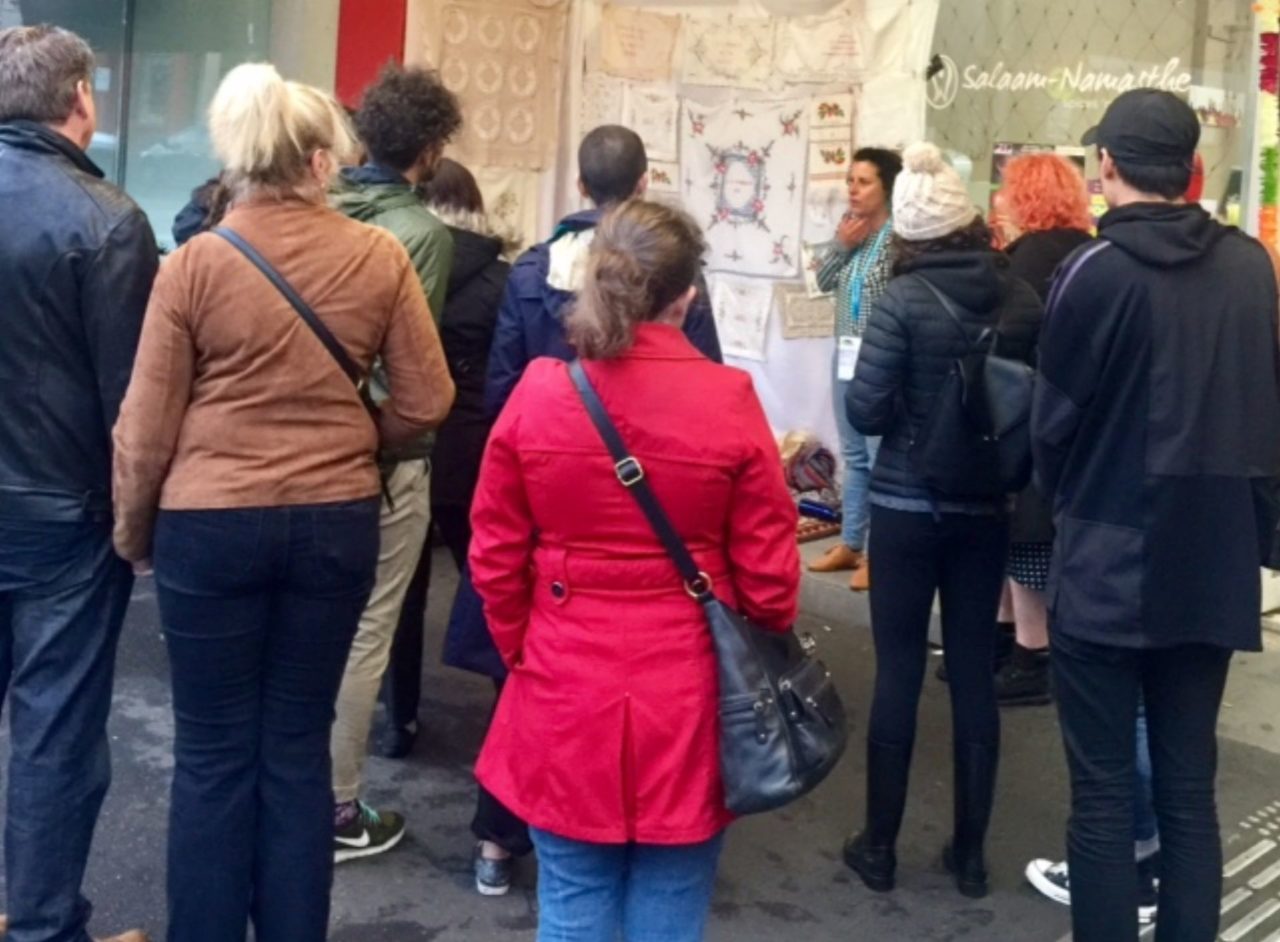
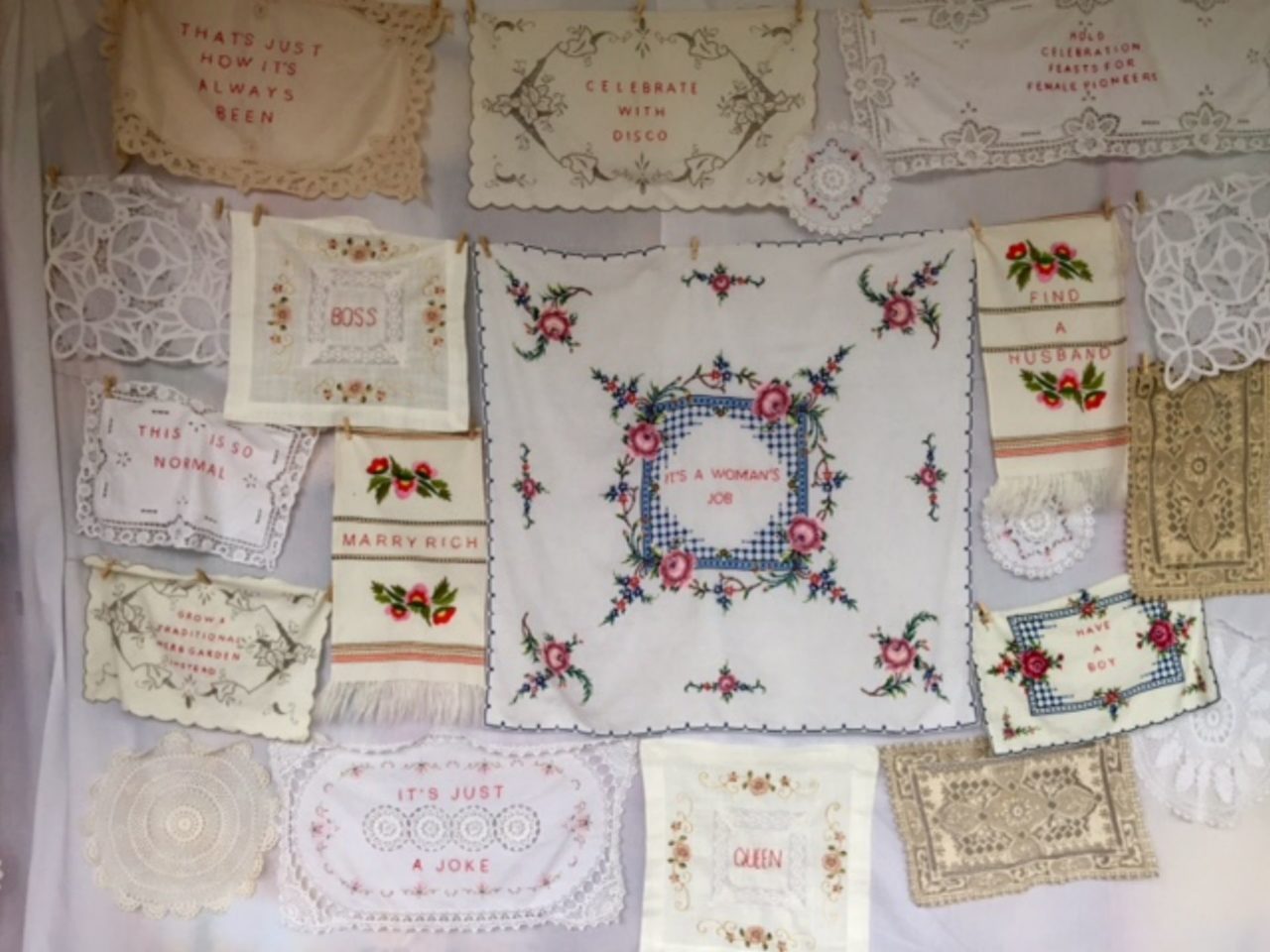
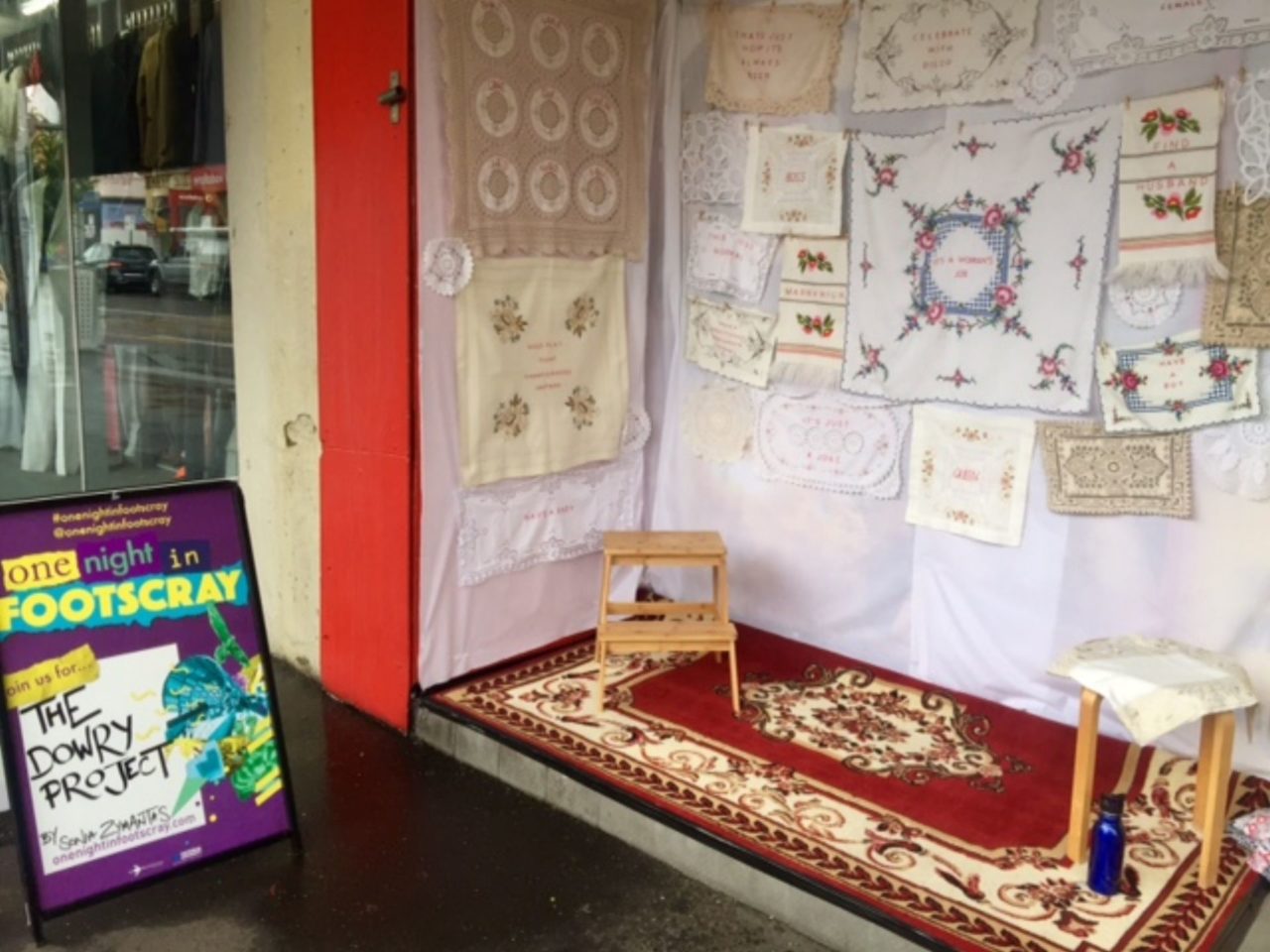
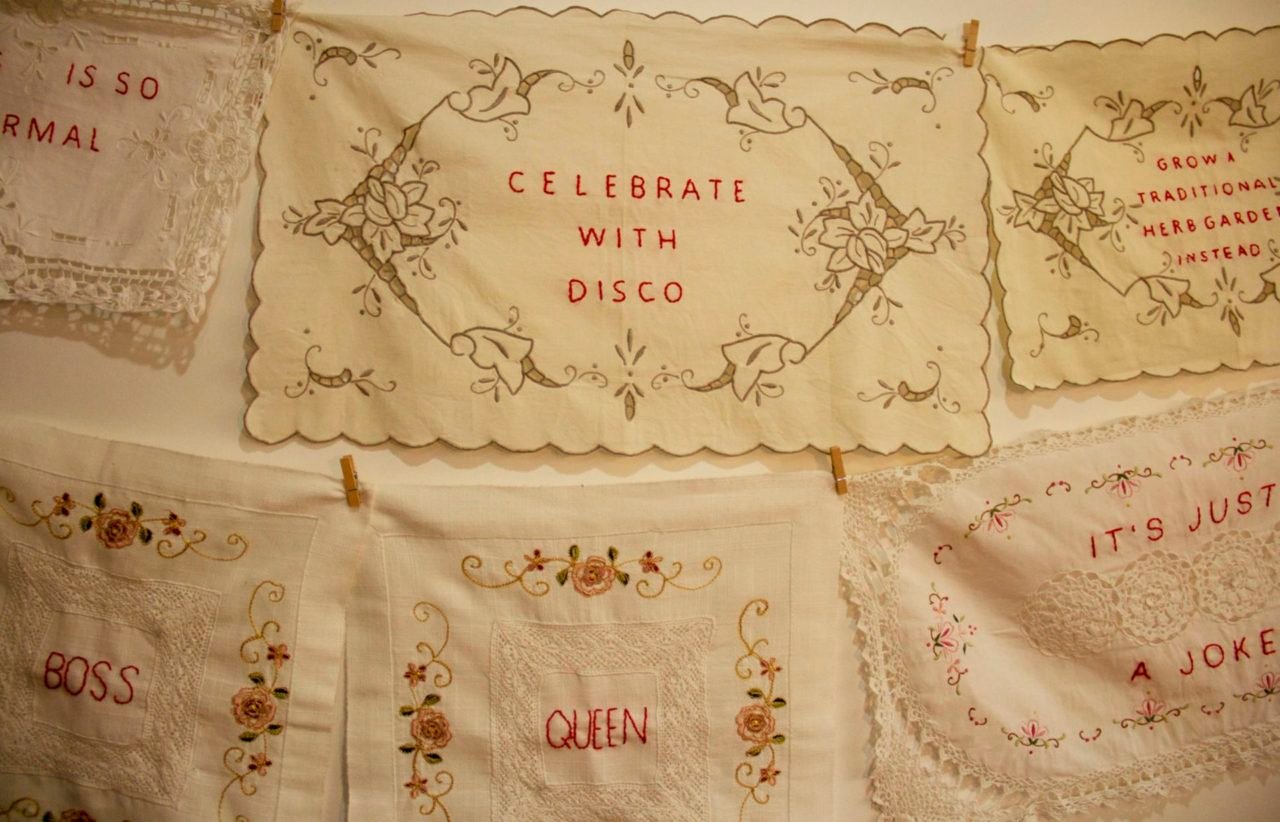
“For example, are you less Greek if you don’t want to get married? Or are you less Greek if you don’t consider yourself religious? All those things. It really opened up so many doors for conversation,” Sonia reflected.
“I don’t think people have really thought about what they would like. I don’t think anyone’s ever been consulted about what’s valuable to them as a tradition. I think they hadn’t really had a chance to think about ‘what do I identify with?'”
But with Sonia finally having given them the opportunity, it was a question that really got people thinking. They were then instructed to write it down, and if there was time start embroidering it themselves, or leave it in the capable hands of Sonia. She has since posted the final pieces, with people’s personal traditions, on social media, tagging them in what has resulted in a meaningful piece of work.
The project was also a chance to look at gendered stereotypes, and to examine the language that supports them.
While some of Sonia’s work has drawn on her Greek background as a means of connecting with others, it stems from her greater passion for creating avenues through which people can communicate and document their untold stories and contemporary urban experiences. As a community arts worker, her interests in feminism, multiculturalism, and urban identity will see her head to Athens next June to visit Victoria Square Project, a socially engaged arts organisation.
“I really like that line of thinking, of being able to activate spaces and provide other dialogues, other than the mainstream and the stereotype of what should be on offer … people being able to engage with the space, it’s nice.”









